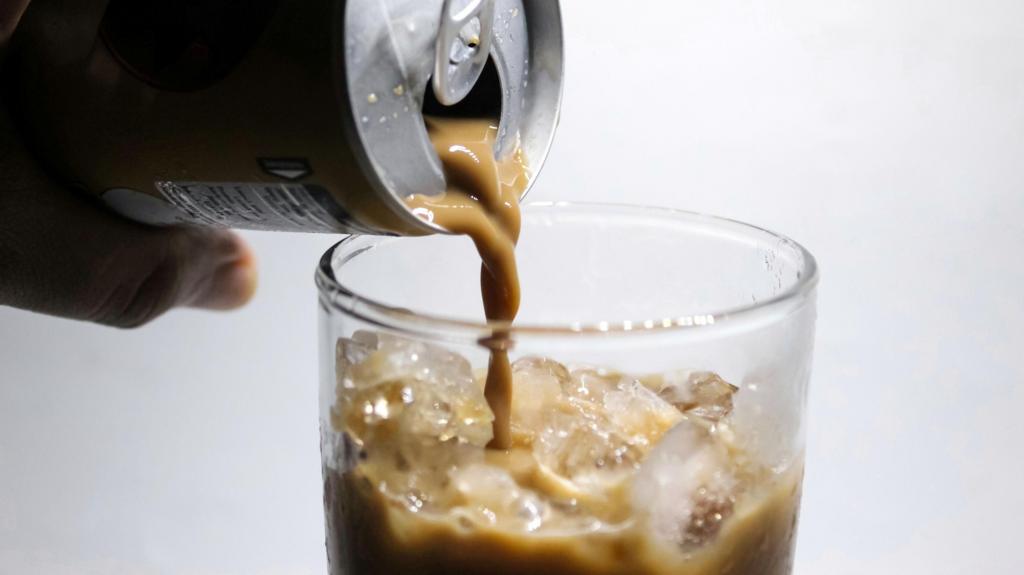The sugar levy currently imposed on carbonated soft drinks may soon be broadened to include pre-packaged milkshakes and lattes, according to new government proposals.
Officials are seeking public feedback on plans to remove the existing tax exemption for milk-based beverages, as well as non-dairy alternatives like oat or rice drinks.
Chancellor Rachel Reeves, in her autumn budget last year, stated the government was contemplating expanding the scope of the levy.
Shadow chancellor Mel Stride described the move as a “sucker punch” to consumers, arguing Labour had already “pushed up the cost of living for families”.
The soft drinks industry levy (SDIL), more commonly referred to as the sugar tax, is a charge on pre-packaged beverages—including those found in supermarkets—which contain significant sugar content.
The levy, directed at manufacturers, was introduced by the Conservative government in April 2018 as part of efforts to address rising obesity rates.
On Monday, the Treasury also revealed plans to lower the maximum permitted sugar content in drinks before tax applies, reducing the threshold from 5g to 4g per 100ml.
Government analysis indicates that around 203 pre-packed milk-based beverages—constituting 93% of sales in the category—would face the levy unless manufacturers reduce their sugar content in line with the new proposals.
Home Secretary Yvette Cooper emphasised that the government was consulting on “further steps” with the levy, given its demonstrated positive impact on children’s health.
“We are committed to taking practical, effective measures to improve children’s health,” she told BBC Breakfast on Tuesday.
The initial exemption for milk-based products was designed to address concerns about sufficient calcium intake, particularly for children.
In announcing the proposed changes, the Treasury highlighted that only 3.5% of young people’s calcium comes from these drinks, suggesting “the health benefits may not outweigh the risks from excess sugar”.
“By extending the SDIL to cover milk-based and milk alternative beverages, the government would incentivise manufacturers to further cut sugar content,”
officials said.
Currently, 89% of soft drinks available in the UK are not taxed, the government says, thanks to widespread reformulation by producers since 2018.
However, the threshold has effectively acted as a “target”—with many products formulated to fall just below the 5g mark.
The government consultation is open until 21 July.
Since its inception in 2018, the SDIL has generated £1.9 billion, with £338 million raised for HMRC in the 2023-24 fiscal year, according to official figures.
Opposition to the levy has come from the beverage sector, pubs and off-licences. Detractors argue that the measure unduly burdens lower-income households and is ineffective in tackling obesity.
Reform UK leader Nigel Farage told the BBC he is “sick to death of a government telling us how we should live,” suggesting efforts should focus on education, allowing individuals to make informed decisions.
Conservative leader Kemi Badenoch said she was not supportive of the measure when it was introduced, criticising it as “a bit too much nanny state.”
She added on BBC Breakfast: “My concern is that the government is out of ideas and is simply seeking new things to tax.”
By contrast, Tam Fry, chair of the National Obesity Forum, expressed strong support for the proposal, stating it was “high time” the levy was expanded.
Appearing on BBC Radio 4’s Today programme, he acknowledged it would not be a “game-changer” but considered it “one of the necessary tools” for addressing obesity.
The Food and Drink Federation welcomed the opportunity to contribute to the consultation process.
The trade group highlighted “significant progress,” noting a 46% reduction in soft drink sugar over the past five years and a 30% reduction in milk-based drink sugar during the last three years due to extensive research and innovation.
It also stressed that manufacturers are dealing with ongoing inflationary pressures, and urged the government to “maintain conditions conducive to innovation and provide long-term policy clarity to ensure business confidence.”
A pioneering test has finally identified a rare bacterial infection that had plagued Ellie Irwin for years.
Calls to a mental health support helpline have doubled between 2023 and 2024, now averaging 6,000 per month.
Advocates caution that the new mental health law will not curtail the detention of disabled individuals in secure hospitals.
Hemsworth council has warned that a local scheme could have “negative impacts” on the town, which is already “health-deprived”.
Addressing climate change is a leading concern for one voter in the upcoming local county council elections on 1 May.

